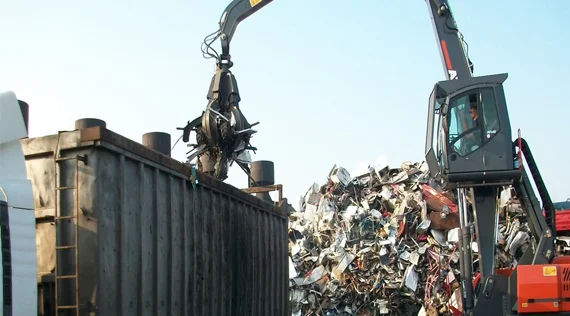
SEATTLE (Scrap Monster): Government’s protectionism measures in the scrap metal industry are costing the economy some R8.5 billion a year without any tangible benefits in terms of job creation.
This is according to XA Global Trade Advisors’ second Scrap Metal Report, which was released yesterday.
The report details how companies that wish to sell scrap are penalised both for trying to sell the material locally as well as when they seek to export it.
“Few sectors of the economy demonstrate the unintended consequences of industrial policy better than the scrap metal sector in South Africa,” read the report.
“We have market failures, attempts to correct those failures with subsidies, export duties and preferential finance, resulting in suboptimal outcomes for almost everyone.”
Donald MacKay, founder and CEO of XA Global Trade Advisors, told Business Report that the lack of a free and open market was causing billions of rand of pain to economy.
He said this was because companies with scrap metal had to discount this by 30% under the Price Preference System (PPS) when selling to local consumers of the product, such as mini-mills.
Exporting, too, was a nigh impossibility because companies cannot get a permit from the International Trade Administration Commission of South Africa without first having offered the metal to local companies, said MacKay. Then, if entities can export, there is a 20% duty, he added.
This, MacKay said, has the effect of subsidising foreign consumers to the disadvantage of local companies.
The Scrap Metal Report explained that some R8.5bn a year was transferred in value from the steel scrap generators to the steel scrap metal consumers. Another R463 million was paid per year in export duties on scrap metal that nobody wants (R339m on ferrous alone).
Government’s rule that scrap metal must first be offered locally is intended to protect jobs at the demand side.
However, MacKay said this industry was negligible in terms of economic contribution, accounting for only some 3 000 jobs.
“The intervention is, I believe, ill-informed. South Africa would be better of with that R8.5bn in the pocket of companies spending that money to be more competitive,” he said.
This is taking place in an environment where there is increased demand for scrap metal. The report noted that, unlike steel where production can be increased, there is a finite supply of scrap metal in that it emanates from State-Owned Enterprises (SOEs), manufacturing, construction, mining and household scrap.
At least 28% of the scrap generated is manufacturing scrap and 72% is obsolete scrap.
“You can quickly see that for the supply of scrap metal to rise, either we need to import scrap metal from elsewhere or we need a more vibrant economy,” the report said.
“Importing scrap implies paying global prices, which we know the local consumers are not prepared to do, leaving the pressure on factories, construction and so on to generate more scrap.”
However, it said that SOEs were “in trouble, manufacturing is a disaster, construction companies are failing, mining is in decline and households are buying less, which means fewer washing machines and stoves are being scrapped”.
At the same time, demand is being increased through three incentives from government, which are the PPS, export duties on scrap metal and preferential finance from the Industrial Development Corporation, it said.
Although demand has increased and supply remained static, prices have not risen due to protectionist measures implemented by the government, the report stated.
“Importantly, scrap is becoming increasingly valuable. And so, you're competing with countries that are prepared to pay a premium on scrap,” MacKay said.
Courtesy: www.iol.co.za



| Copper Scrap View All | |
| Alternator | 0.40 (0) |
| #1 Copper Bare Bright | 3.95 (-0.03) |
| Aluminum Scrap View All | |
| 356 Aluminum Wheels (Clean) | 0.75 (0) |
| 6061 Extrusions | 0.65 (0) |
| Steel Scrap View All | |
| #1 Bundle | 360.00 (0) |
| #1 Busheling | 380.00 (0) |
| Electronics Scrap View All | |